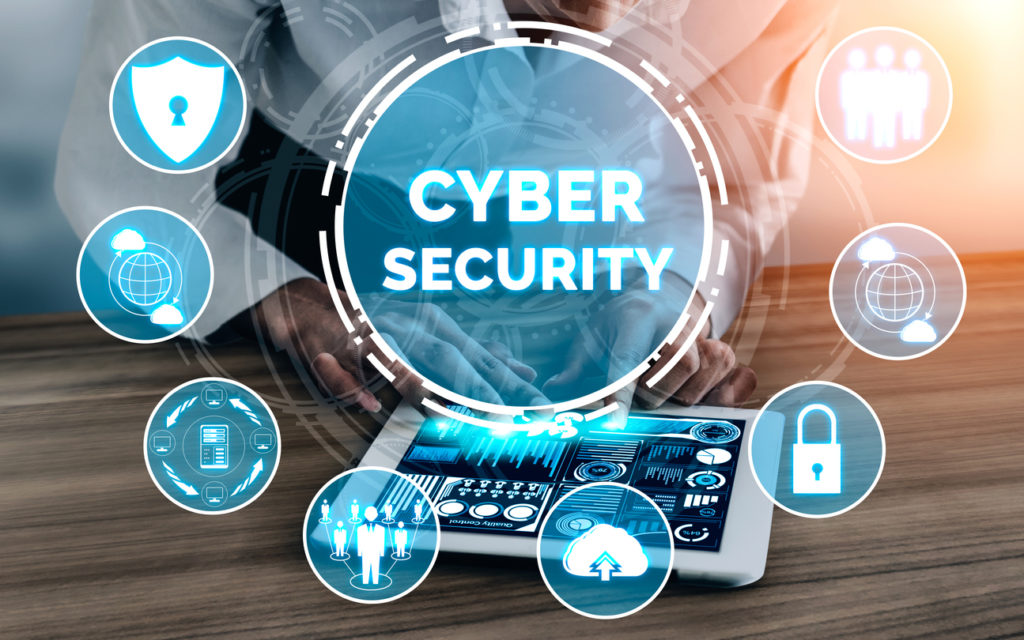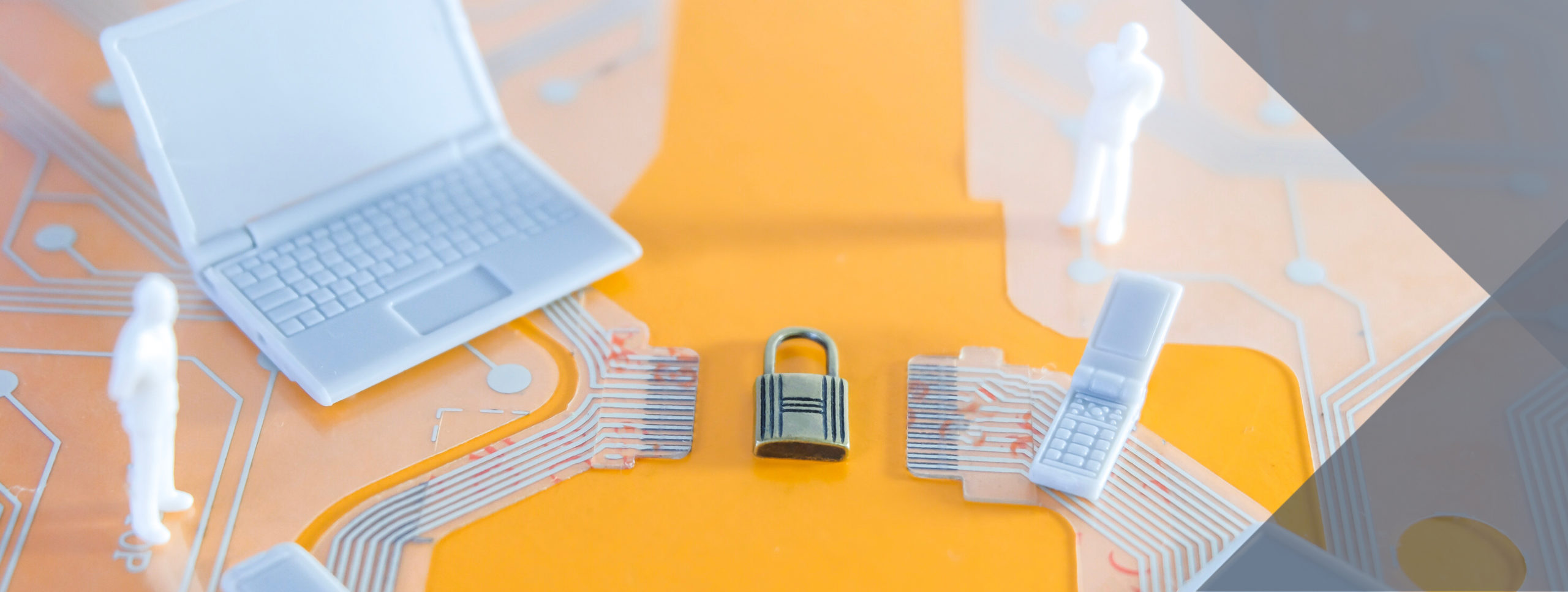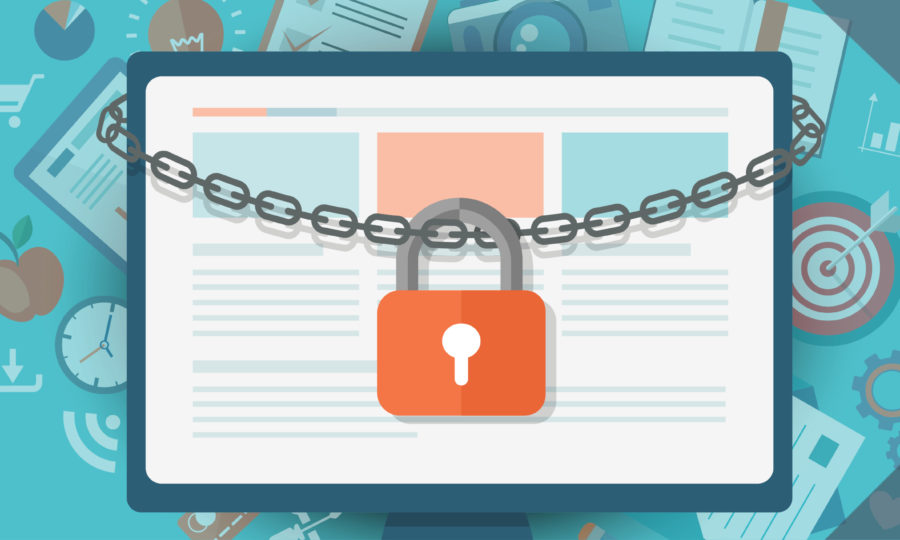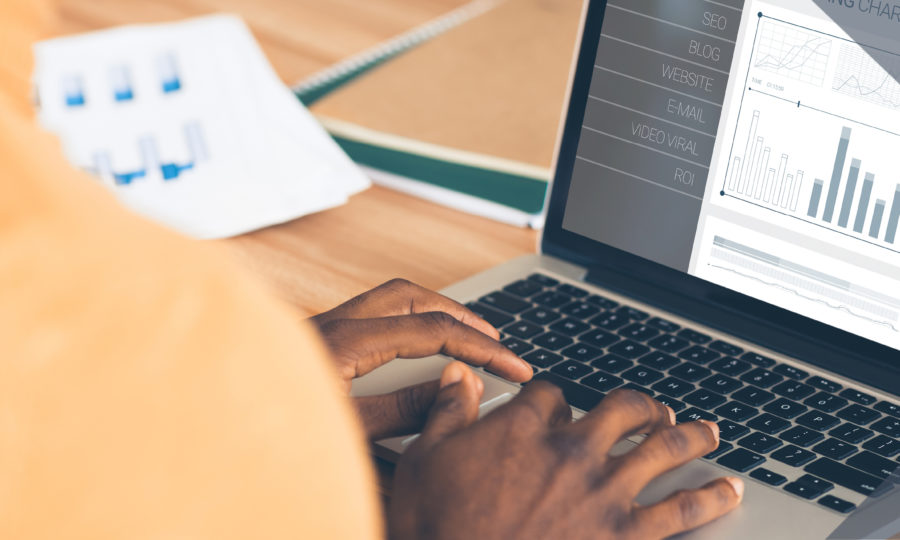7 Cybersecurity Strategies to Keep Your Data Safe
Rob Seas Content Strategist/Copywriter
The Netflix documentary “The Social Dilemma” offers a chilling look from technology experts and insiders at how our every move is tracked and recorded by companies such as Google, Facebook and Apple. While you might be able to delete your accounts, doing so puts your business at a disadvantage. And you can’t own a mobile phone without exposure to constant tracking. The continued accumulation of our data makes us all more vulnerable to cybersecurity threats both personally and professionally.
Kinetic’s May blog posts offer some ways to put big technology to work in your marketing efforts. Since there’s little we can do to opt out, we may as well take advantage of the shifting landscape. At the same time, we do need to remain vigilant about protecting our data.
It’s never been easier to work from anywhere. But new ways of working come with new risks. As we send information via text and email over public Wi-Fi networks, we expose our data. If large banks and corporations can be hacked, you and your business are certainly not immune to threats.
When the pandemic forced a shift in telecommuting, the hackers followed us home. They take advantage of current events and changing circumstances to exploit those who are most susceptible. Since the pandemic began last spring, cybercrime has increased 600 percent.
During the last year, you’ve probably encountered scams related to COVID-19 through email, phone, or text. Hackers have even posed as charities helping frontline healthcare workers.
These types of cybersecurity attacks will continue to grow as more and more businesses move services and data to the cloud.
You can protect your data and business in 2021 and beyond by following seven simple cybersecurity strategies.

Cyber Security and Digital Data Protection Concept. Icon graphic interface showing secure firewall technology for online data access defense against hacker, virus and insecure information for privacy.
Keep Your Software Up-to-Date
Yes, it’s annoying to track all the updates, and it can be time-consuming to apply them. But failing to do so leaves you wide open to data or privacy breaches. As soon as software companies become aware of bugs and vulnerabilities, they release updates to patch them. Apply them as soon as possible.
Protect Your Passwords
Protecting your passwords can be daunting as your business and personal accounts proliferate. Make that task easy with a password management service such as 1Password or LastPass. They help you maintain and store strong, unique passwords across all of your devices and accounts. With password managers, you no longer need to worry about making your passwords memorable. Never use the same password across sites or devices. And lock down your phone with a strong password plus fingerprint or touch ID.
Disable Lock-Screen Notifications
You can hide the personal information that pops up on your phone’s lock screen by turning off lock-screen app notifications. By disabling app notifications, you will keep text messages and social media notifications private.
Put Your Apps in Lockdown
After disabling lock-screen notifications, you can take the additional step of locking your apps. This will provide an added level of security for your apps and works just like the lock-screen feature. If someone else uses your phone or if your device is stolen, the contents of your apps will remain locked behind a passcode.
Keep Your Browsing Private
When using free public Wi-Fi, you can use Virtual Private Network (VPN) services to obscure your personal information from others on the same unsecured public network. Make sure the VPN service you choose is legitimate and avoid free VPNs. These services typically cost less than $15 per month and are well worth it if you travel and work in public spaces frequently.
Encrypt Your Data
You’ve probably heard of WhatsApp and Signal, which are available for free on iPhone and Android. These and other encryption apps scramble your data so a key is required to understand it. For laptops and PCs, applications such as Microsoft Office and Adobe Acrobat allow you to set passwords and encrypt individual documents. You can also purchase disk encryption products to protect computer files, folders and removable drives.
Back It Up
Data losses can happen for any number of reasons, including hard drive failures, ransomware attacks, human error and physical theft. The cloud and external drives makes backing up photos, documents and data easier than ever. Back ups give peace of mind and allow you to quickly restore data when it is lost or stolen.
Now, more than ever, we live our lives online. With telecommuting here to stay and big tech. tracking our every move, it’s important to lock down our devices and data.
Rob Seas
Content Strategist/Copywriter
It all began with a father-son fly-fishing trip at 16 years old, and Rob was hooked on Montana. Growing up in Annapolis, Maryland, it took a little while for him to make his way here for good. But in the meantime, he graduated from Syracuse University with a degree in Magazine Journalism, held a variety of editorial positions across the country and worked as a freelance web developer for companies large and small, ranging from startups to international corporations like Visa, The Nature Conservancy, and Levi Strauss & Co.
He still loves to fish – and hunt, work magic in the kitchen… and he’s an artist. All of this experience, worldliness and creativity means that Rob is an incredible Kinetic talent and invaluable asset to the team and our clients.
Read more about Rob


